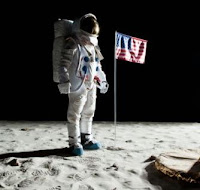Why is it so
doggone hard to talk about issues relating to race? After all, it’s 2012, the second
decade of the 21st century. In my lifetime alone, we’ve done
everything from putting men on the moon and toppling the Berlin Wall, to inventing
flat screen TVs. Yet we still aren’t having authentic, action-oriented conversations
about race as a community. What’s more, in some sectors, there’s no
conversation at all. The silence is deafening, and there are many reasons for
it.
Some say, “There’s
no problem. Race doesn’t matter anymore; we have an African-American president.
Doesn’t that prove something?” It does. It demonstrates we’ve come a long way
from the lynch-filled days of the Jim Crow era. But putting Barack Obama in the
White House doesn’t remove racially discriminating practices still embedded in
our court systems and education institutions – practices so entrenched we often
can’t even discern them. Nor does it negate things more readily visible and
equally damaging, like disapproving looks a couple might receive as they wait with
their biracial child in a grocery checkout line.
Last summer, a
vandal spray-painted racist and other hateful epithets on abandoned houses for the
neighborhood to see. That fall, students at a high school assembly carried out what
they described as ‘harmless teasing’ when they engaged in what many adults might
regard as racial stereotyping. Just a few weeks ago, at another school, several
white students reportedly taunted a group of African American students with a
noose. In each case, there was little community dialog regarding the occurrences.
What is it
about race and racism that makes it so hard to discuss, even among sensible,
well-meaning folks? You think at least it’d be easy for people of the same race
to talk among themselves about it. But more often than not it isn’t; at any
rate, not in ways that propel conversation toward tangible solutions. Instead, when
the subject is brought up, we wade into depressingly familiar refrains that sound
like what used to be known in the 20th century as a ‘broken record.’
Something is
indeed broken. Hopefully, it isn’t our spirit to face what truly is among one
of the most neglected issues of our day. We’re better than that. I’ve met and
worked with too many amazing and committed people (of all races) here and know
it to be true. Yet in many parts of our community, race is the elephant in the
room. It’s a topic that can dominate a conversation without a word being
uttered.
Young people
seem better able to cope with the issue but even they can be confused by its
complexity. What’s worse, so many of them have little historic perspective of
what happened in this country, which I learned firsthand last year as a volunteer
docent when the Jim Crow exhibit visited the Art Center. Many youth I spoke to
there had little to no understanding of what Jim Crow was, let alone the
discriminating laws and actions associated with it.
It’s time this
community came out of the closet to talk and
do something about issues relating to race and racism. Clearly the
head-in-the-sand approach isn’t working. I welcome comments on the matter; particularly
those that forward the conversation about race, racism, and what we as a
community can do about it – now, in the second decade of the 21st
century.


No comments:
Post a Comment